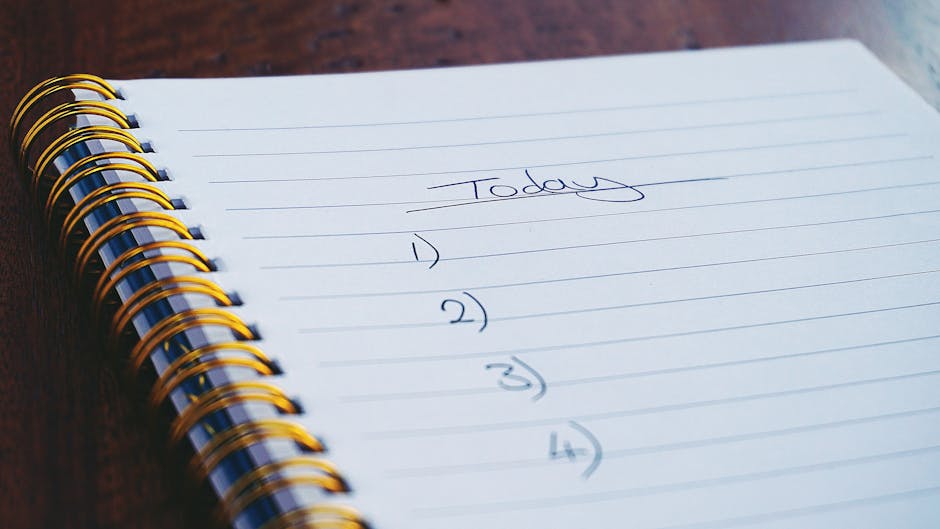The Role of Breaks in Study Efficiency
Have you ever felt your mind drift while studying? You’re not alone. Many students struggle with focus. What if we told you that taking breaks could actually help you learn better? Let’s explore the powerful role of breaks in improving your study efficiency.
Why Are Breaks Important?

Studies show that our brains can only focus for a limited time. The average person can concentrate for about 25 to 30 minutes before their attention starts to fade. This phenomenon is known as the “attention span.” After this time, your brain needs a rest to recover.
Research from the University of Illinois found that brief breaks can improve focus and boost performance. So, if you feel your mind wandering, it might be time for a short break.
How Do Breaks Improve Learning?

Breaks help in several ways:
- Restores Energy: Just like your phone needs to recharge, your brain does too.
- Enhances Memory: Studies show that taking breaks can help strengthen what you learned.
- Reduces Stress: Regular breaks can lower anxiety and keep you from feeling overwhelmed.
Imagine running a marathon. You wouldn’t sprint the entire time without stopping, right? Youd take breaks to drink water and catch your breath. Studying works the same way. Breaks help you maintain your mental stamina.
What Types of Breaks Should You Take?

Not all breaks are created equal. Here are some effective types to consider:
- Short Breaks: Take 5-10 minutes after 25-30 minutes of studying. Stretch, walk around, or grab a snack.
- Longer Breaks: After a few study sessions, take a longer break, like 30-60 minutes. Do something enjoyable, like watching a quick video or taking a nap.
- Active Breaks: Engage in physical activity. Go for a quick jog, do some jumping jacks, or even dance. This gets the blood flowing and boosts your mood.
These breaks not only refresh your mind but also improve your blood circulation, which is vital for brain function.
How Long Should Your Breaks Be?

it’s important to balance study time and break time. A popular method is the Pomodoro Technique:
- Study for 25 minutes.
- Take a 5-minute break.
- After four cycles, take a longer break of 15-30 minutes.
This technique keeps you focused while giving you regular breaks. Many students swear by it!
What Should You Do During Breaks?
Knowing what to do during breaks can make them more effective. Here are some options:
- Stretch: Get up and stretch your body to relieve tension.
- Walk: A short walk can clear your mind and boost creativity.
- Hydrate: Drink water to keep your brain hydrated.
- Meditate: A few minutes of mindfulness can help reduce stress.
- Socialize: Talk to a friend or family member to refresh your mood.
Choose activities that energize you. Avoid screens if possible, as they can strain your eyes and lead to mental fatigue.
Can Breaks Help with Exam Preparation?
Absolutely! Taking breaks is crucial, especially during exam season. Heres why:
- Prevents Burnout: Studying for hours without breaks can lead to burnout. Regular breaks keep you motivated.
- Improves Recall: Breaks help you retain information better. you’re more likely to remember what you studied after a refreshing pause.
- Reduces Anxiety: Breaks can lower stress levels, helping you stay calm and focused during exams.
As you prepare for exams, remember to incorporate breaks into your study routine.
How Do Breaks Benefit Your Well-Being?
Taking breaks isn’t just about studying; it’s also about taking care of yourself. Here are some well-being benefits:
- Improved Mood: Breaks can boost your mood and motivation.
- Better Health: Regular breaks can reduce stress, which is linked to various health issues.
- More Creativity: Taking time away from studying can help spark new ideas.
Remember, your mental health is just as important as your academic performance. Prioritizing breaks can lead to a healthier balance.
Common Misconceptions About Breaks
Many people think that taking breaks wastes time. This is far from the truth! Here are some myths debunked:
- Myth: “I need to study continuously to learn.” Fact: Continuous studying can lead to fatigue and decreased productivity.
- Myth: “I can’t afford to take breaks.” Fact: Breaks can save time by improving focus and retention.
Understanding these facts can help you embrace breaks as a vital part of your study routine.
Expert Insights on Breaks and Study Efficiency
According to Dr. Barbara Oakley, an educator and author, Taking breaks is essential for learning. It helps to consolidate knowledge and gives your brain a chance to process information. This perspective emphasizes the value of breaks in the learning process.
Incorporating expert advice can further enhance your study habits.
Takeaways for Effective Studying
As we’ve seen, breaks play a crucial role in enhancing study efficiency. Here are some key takeaways:
- Implement the Pomodoro Technique to balance study and break times.
- Choose active and refreshing activities during breaks.
- Recognize that breaks improve memory retention and reduce stress.
- Prioritize your well-being for better academic performance.
Remember, taking breaks isn’t just a luxury; it’s a necessity for effective learning. So the next time you study, don’t hesitate to step away for a few moments. Your brain will thank you!
For more tips on effective studying, check out our post on Effective Study Tips.



